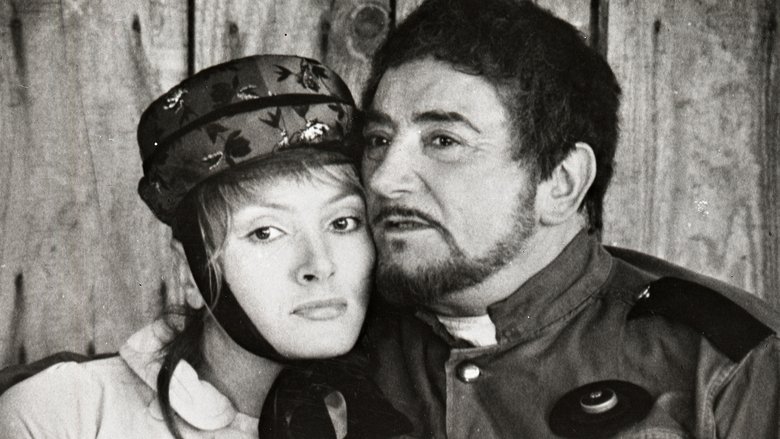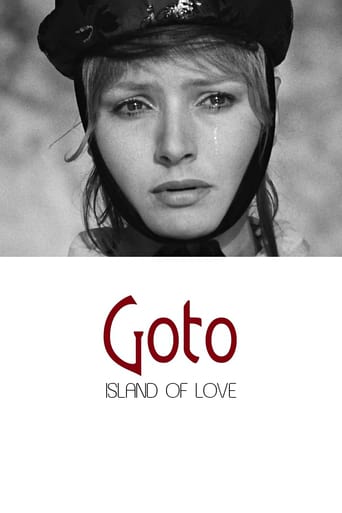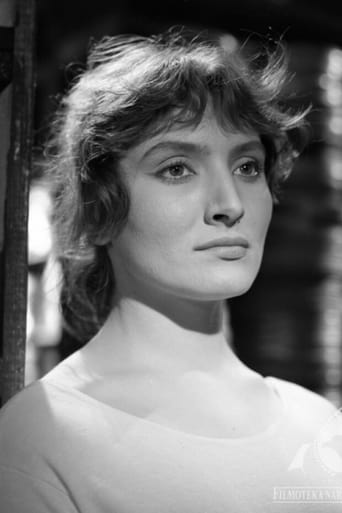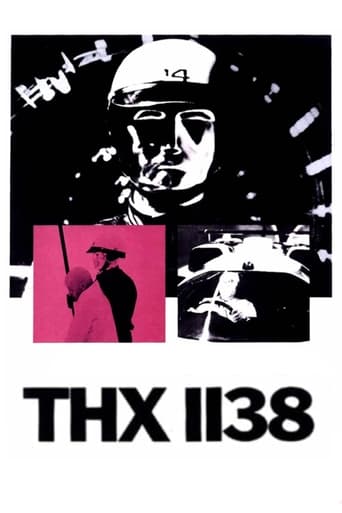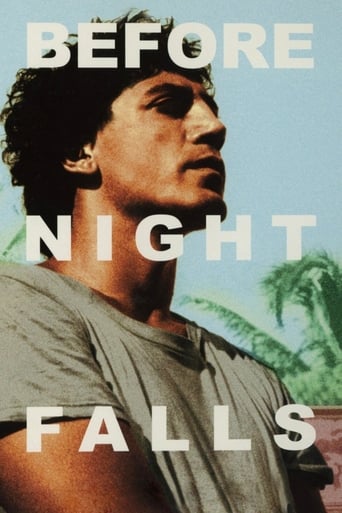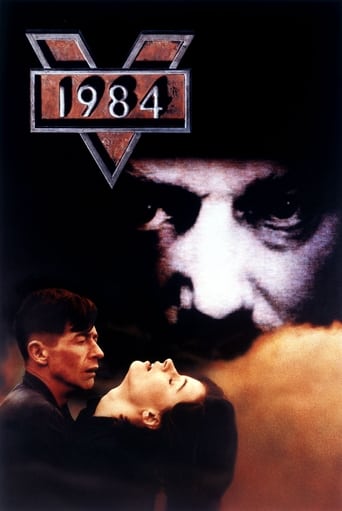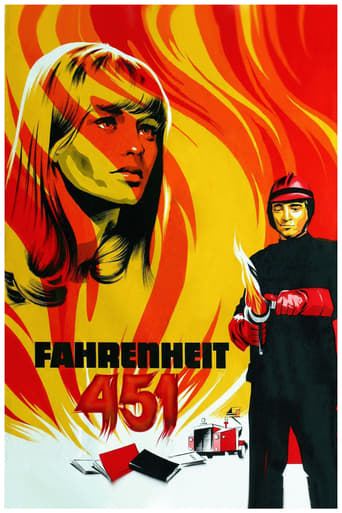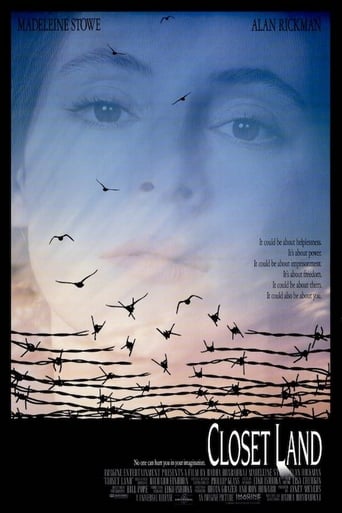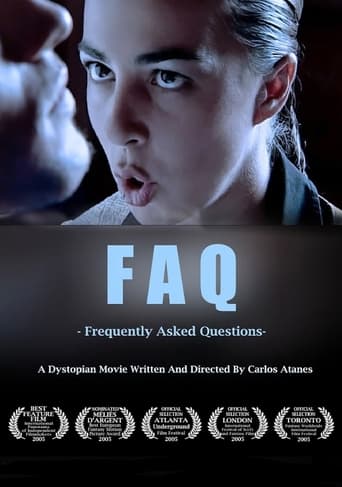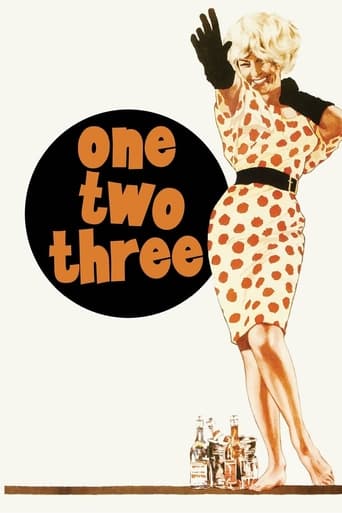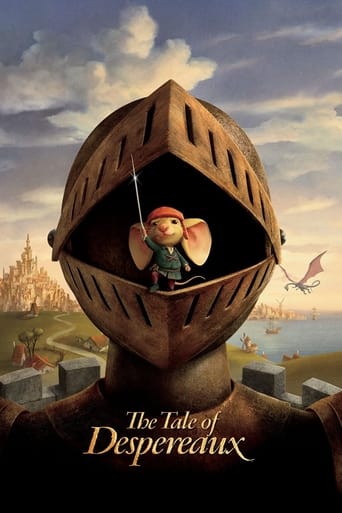Goto, Island of Love (1969)
In an isolated community on a mythical island, a pompous dictator holds public executions and lets criminals fight in the streets.
Watch Trailer
Free Trial Channels
Cast


Similar titles
Reviews
Surprisingly incoherent and boring
A waste of 90 minutes of my life
Just intense enough to provide a much-needed diversion, just lightweight enough to make you forget about it soon after it’s over. It’s not exactly “good,” per se, but it does what it sets out to do in terms of putting us on edge, which makes it … successful?
Blistering performances.
This was the debut feature from infant terrible producer Walerian Borowczyk who went on to make such films as 'Blanche', 'Immoral Tales',and 'Behind Convent Walls' ' and became known for his use of sexual scenes or art house porn, which does not appear very much in this film.Set on an archipelago that has suffered a major natural disaster we find a community stuck in the past. They are cut off from the outside world they have stubbornly maintained the status quo.Their leader is Goto who has assumed Kingship by some constitutional necessity. He seems to look on his subjects as he does his pet Alsatian dogs and is married to the beautiful Glyssia played by Ligia Branice ('Blanche'). One of the forms of entertainment is the public fights, which take place on a ropey stage where talentless musicians torture home made instruments in a sort of 'end of pier show' and display of awfulness. These fights are punishment for all crimes whether theft or murder and the loser is executed.Grozo survives one such encounter and is spared. His reward is to be the royal boot polisher - keeper of the royal dogs and maker of fly traps. He lusts after Glyssia like a sixteen year old and his first crush. She however, has fallen for a dashing officer - and keeper of the royal horse - and they have decided to escape. Grozo though could teach Machiavelli a thing or two and soon his plan to gain power, which will lead to requite his lust, is in full motion.This is an Art-house film which is filmed in monochrome, but several parts are in Eastman colour for dramatic and stylistic effect, most of the camera angles are fixed - adding to the voyeuristic nature of the film. Walerian Borowczyk was developing his style here and he won't be to everyone's taste. Some could view this as self indulgent, cold and even dystopian and that is the whole point. The use of props, shots and scenarios are designed to craft a world that we are asked - not to accept - but to at least try to understand. It is that final part that makes him such an interesting director. This then is arty on purpose, quirky and far from run of the mill and for film historians is probably a must see.
Walerian Borowczyk directed some of the most strange, memorable and intense films of the 1970s and early 80s, all of them concerned with the trials and tribulations of human desire in periods and environments of repression. In 1968 he had begun his live-action feature film making career (after a beginning in animation) with the quite extraordinary Goto, Island of Love.A film unlike any other, Goto tells the story of an island community which has been cut off from the rest of the world after a natural cataclysm. The island is rules by an avuncular despot, Goto, who presides over a ritualistic society in which felons are tested through trial by combat (to the death) and everyone is obsequiously serving his whims. One of the combatants, Grozo, is freed after fighting a huge bully at the request of Goto's beautiful wife Gonasta. Then, like Melvyn Peake's Steerpike in the Gormenghast books, Grozo begins a murderous climb from palace servant to become governor himself. Unfortunately for Grozo, his impulse for this social climbing - the love of Gonasta - is forever unfulfilled as she kills herself after he machinates the death of her lover, the handsome equestrian officer Gono.Where is this island? It's a kind of Grimm's fairy tale land crossed with a dreamscape based on eastern European culture circa the 1890s. Yet whilst the world the story inhabits is pure invention, the emotional story re-enacted is universal in its application. It is as if Borowczyck has stripped human life to its bare essentials - impulse leads to action but action is frustrated. Sometimes this frustration is highly comic (the film is funny like a classic silent clown show, and owes some debt to the absurdist theatre of Beckett, Genet and Ionesco); sometimes the frustration is deeply moving, as when Gonasta watches the small boat she'd planned to escape the island with her lover in sinking slowly beneath the waves. Here as elsewhere the film is back-scored with Handel, the yearning sound of which adds to the eternal feelings of the story on display.The film has obviously been done on a tight budget, with some kind of dilapidated factory building dressed as Goto's palace. As in later Borowczyck, old ornaments and collected antiques crowd the walls and tables, abandoned by their departed owners and maintaining a steadfast existence in materiality which is denied those miserable creatures the humans who made them. Despite the obvious theatricality and artifice of the world on display, Borowczyck manages to suck the viewer into the very raw emotions of the tale.Goto, Island of Love, title aside, isn't as erotic as Borowczyck's later, more notorious, masterpieces. Yet like them it affirms that behind every act is a desire for either sex or power, shows a terrible yearning reaching for impossible satisfaction and shows that the mechanisms we create, our societies and their bric-a-brac, have a curious and somewhat terrifying tendency to imprison and outlast our frail but full of desire human bodies.
The madness of Goto, l'île d'amour is not for everyone. Borowczyk's film is an insane dream-like look into a shattered and dysfunctional world, which if I was to guess, is probably how he sees our own one. So in that sense I suspect that the film is thematically, at least, allegorical.The Kingdom of Goto we might suspect, given that all the characters use only one letter of the alphabet to start their name, is 1/26th of what it was in its former glory and totally cut off from the outside world. What cataclysm was involved in the sinking of the rest of the archipelago (the original trailer to the movie informs us that it was such) is left untouched upon. What remains is a world where the people have existed for a century for the King's good pleasure (although Goto's educationalist is at pains to give us his correct constitutional position, which is that he has become King by informal acclamation). It is clear that Goto III views all his subjects as dogs, especially in the way that he strokes the back of Grozo's head when he pleads for clemency. Furthermore the only form of entertainment appears to be forcing convicts to fight and executions.A good way to look at the movie, as another reviewer has suggested is through the lens of Mervyn Peake's Gormenghast trilogy. Grozo is a Steerpike-like social climber intent on being with the king's wife Glyssia (played by Ligia Branice who plays Blanche in the Borowcyzk's movie of the same name, and who was also Borowcyzk's wife). His rise is the narrative backbone of the film.The flavour of this movie is not love but lust. Grozo becomes the official boot-polisher and keeper of the queen's clothes, and it is clear that he derives much sexual satisfaction from this position. One clear example of the film's preoccupation with this is a split-second shot of Glyssia's wonderful feet in sensual red boots. There is also a sense that Grozo is an Oedipus (as another commenter has alluded to) in the way in which he buries his head in the lap of Glyssia awaiting clemency, a shot of which recurs throughout the film in flashback.The surreal sex and death theme is kept up with a wondrously gaudy colour close-up shot of a bucket filled with bloodied water, just used to clean up after an execution. There is also the symbology of flies, which was very important to Bataille and other Surrealists.There are two versions of this movie, one without any colour scenes, which I saw several years ago. And one with several very short bursts of colour of lunatic clarity on the Cult Epics DVD that I watched more recently. It is essential to watch the latter.I love Borowczyk's shooting style, the screen is always parallel to the background wall, and the shots if not static pan very little. A fellow enthusiast has suggested that this makes the viewer feel like a voyeuristic interloper. For myself I am a fan of such formalism. There is a magnificent colour sequence at the end, of Glossia's bedroom, where, in a coup de maǐtre, the director totally abandons his shooting rubric and the camera rolls around Glossia's bedroom like the eye of a madman. It's an exquisite and jarring change. We are made to feel the glee of the fetishist who's eye caresses a room which is strewn with pastel-coloured silks and other feminine apparel.The use of music in Borowczyk's films must be noted, the soundtrack to Blanche is one of the great soundtracks and Goto is accompanied by an impeccable Handel organ score which blasts out (as organ music should) during silences.It would be interesting to know what a feminist film historian might think of this movie. The only women we ever see are whores, or with Glyssia an ineffectual sex object.So if absurdity, fetish, surrealism, and organ music are right up your street, look no further. The only slight problem I had with the movie is the editing, I felt that at times the movie did not flow smoothly enough, but perhaps the effect was intentional.
Walerian Borowczyk is rarely mentioned these days but back in the 1970s and 1980s he created quite a stir with arthouse/soft porn movies like 'Immoral Tales', 'Behind Convent Walls', 'Dr Jekyll and His Women', and especially his sensational 'The Beast', which is still quite unlike any movie you've ever seen, believe me! So I was very interested to be able to watch 'Goto', which I believe was his first full length feature. It doesn't have the sexual content you might expect (there is some very brief nudity, but that's it really), but it's still VERY odd, even for Borowczyk, and utterly fascinating. The story is set on the island of Goto, which after a natural disaster in the late 19th Century, has kept its society frozen in the past. Nothing much changes and everything is static and ritualized. This makes the plot reminiscent of Kafka and Mervyn Peake. Mentioning those two might give you SOME idea of what to expect, but it's a very difficult movie to categorize or describe. It's nowhere near as outrageous as some of Borowczyk's later and better known work, but if you treasure strange and unusual movies I highly recommend you track it down.

